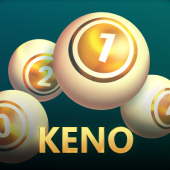Keno: A Statistical Analysis of a Classic Cards Game
Dive into the world of **Keno**, a premier lottery-style **cards game** available on **phlwi**. This analysis deciphers its mechanics, offering insights for both new and seasoned players. Try the **Keno Demo** to experience it firsthand.
Deconstructing Keno: The Core Mechanics
At its heart, **Keno** is a game of probability that combines the anticipation of a lottery with the fast-paced nature of a modern **cards game**. Players select a set of numbers (typically from 1 to 20) from a pool of 80. The system then randomly draws 20 numbers. Payouts are determined by the quantity of matched numbers, a concept known as 'catches'. The elegance of this **Keno** system lies in its simplicity, making it accessible to all players on the **phlwi game** platform. For a hands-on understanding, the **Keno Demo** provides a perfect, risk-free environment.
A Statistician's Guide to Playing Keno
Mastering this **cards game** involves understanding its statistical foundation. The gameplay loop is straightforward:
- Number Selection (Spotting): Choose your desired quantity of numbers. The number of spots you select directly impacts the probability matrix and potential payouts for your **Keno** game.
- Wager Placement: Define your stake for the upcoming draw. The **phlwi casino** interface allows for flexible betting.
- The Draw: Observe as 20 numbers are randomly generated. Your winnings correlate directly to your number of catches.
We recommend using the **Keno Demo** feature to familiarize yourself with the paytable and how different spot selections affect outcomes before committing real funds. Playing the **Keno Demo** is a key strategic step.
Advanced Feature Analysis in Keno
While the core of **Keno** is its number-drawing mechanic, modern versions on platforms like **phlwi** include features that add strategic layers. The paytable is the most critical element, detailing the payout for each number of catches against the number of spots played. Unlike the cascading wins in a dynamic slot like Wild Bounty Showdown, **Keno**'s reward structure is fixed and transparent. Understanding this table is paramount. Some **Keno** variants also offer bonus multipliers on certain draws, injecting an extra layer of variance and excitement into this classic **cards game**.
RTP and Probability Matrix of Keno
The Return to Player (RTP) in **Keno** is a complex variable, heavily influenced by the number of spots chosen by the player. Unlike a game with a more consistent RTP profile such as Open Sesame Mega, the theoretical RTP for **Keno** can fluctuate. From a statistical standpoint, the sweet spot often lies in selecting between 4 to 8 numbers, which typically offers a balanced ratio of hit frequency to payout potential. The **phlwi** platform ensures every **Keno** draw is governed by a certified Random Number Generator (RNG), guaranteeing statistical integrity. The **Keno Demo** is an invaluable tool for players to test these statistical theories.
Keno Frequently Asked Questions (FAQ)
What is the optimal strategy for Keno?
Statistically, there's no single "best" strategy for this **cards game**, as it's based on random draws. However, managing your bankroll and choosing a consistent number of spots (e.g., 6-8) is a common approach. The **Keno Demo** lets you test strategies risk-free.
How does Phlwi ensure the fairness of its Keno game?
Our **phlwi casino** platform employs certified RNGs for every **Keno** draw. These systems are regularly audited for fairness and operate with robust security protocols, similar to the protective systems in games like Iron Dome, ensuring complete transparency and player trust.
Can I play the Keno Demo on the phlwi app?
Yes, the **phlwi app download** gives you full access to our entire library, including the **Keno Demo**. This allows you to practice and analyze the **cards game** mechanics anywhere, anytime.
Related Games on Phlwi
If you enjoy the strategic elements of the **Keno cards game**, explore other exciting titles available on **phlwi**.








